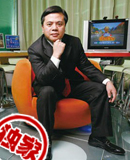2010年全日制翻译硕士考试参考样题
2010年全日制翻译专业硕士学位考试即将拉开序幕,教育部大纲也刚刚出台,如何把握出题难度?怎样选择参考书进行备考复习?近日学校接到很多同学打来的电话咨询此类问题,为此我们综合专家意见为考生提供以下参考书目,及北京外国语大学2009年MTI笔译考试真题,供大家参考。
综合各校英语专业考研翻译方向历年来的出题风格,认为各校出题还是存在很大差异,建议考生可以选择各招生院校翻译方向的指定参考书拿来借鉴,比如考北外的可以参考Bassnett, Susan。《翻译研究》,Gentzler, Edwin《当代翻译理论(第二版修订本)》,马会娟、苗菊编的《当代西方翻译理论选读》等;报考上海外国语大学的考生可以参考[英]杰里米·芒迪《翻译学导论—理论与实践》,Eugene A. Nida & Charles R. Taber《翻译理论与实践》,冯庆华的《实用翻译教程》等,上外口译可以参考
Roderick Jones《会议口译解析》 ,James Nolan《口译:技巧与操练》,鲍刚的《口译理论概述》,梅德明的《高级口译教程》等。比如北京外国语大学2009年翻译专业硕士的笔译考题与翻译理论与实践考试几乎就是同出一辙,有80%的内容一致。如果没有把握可以参考一下本校翻译专业考试的真题解析。
附:北京外国语2009年翻译专业硕士(笔译)考试真题
I. Translate the following passages into Chinese and write your translation on the answer sheet. (50 points-25 points x 2)
Passage 1 In Defense of Translation
by Howard Goldblatt (葛浩文)
How’s this for an occupational testimonial: “There is no such thing as a good translator. The best translators make the worst mistakes. No matter how much I love them, all translators must be closely watched。”
Who are these people everyone loves to hate, and, if they're so bad, how do they get away with what they're doing?
Well, I confess: I'm one of them. I'm a translator。
…
I am sometimes asked why I translate, since to many it seems a thankless vocation. Why, they ask, don't I write my own novels, since I have lived (they assume) an interesting life and must by now have an idea of what a novel should be? I can only say that not all translators are closet novelists, and that I do not consider translation to be a lesser art -- one that ought to lead to something better. The short, and very personal, answer to the question is: Because I love it. I love to read Chinese; I love to write in English. I love the challenge, the ambiguity, and the uncertainty of the enterprise. I love the tension between creativity and fidelity, even the inevitable compromises. And, every once in a while, I find a work so exciting that I'm possessed by the urge to put it into English. In other words, I translate to stay alive. The satisfaction of knowing I've faithfully served two constituencies keeps me happily turning good, bad, and indifferent Chinese prose into readable, accessible, and -- yes -- even marketable English books. Tian na! (276 words)
Passage 2
Downsizing in Vogue
In recent years corporate downsizing has been on the rise throughout the world. Downsizing is reducing costs by dismissing employees and reassigning their duties to the employees who remain. They usually call it restructuring, rightsizing, reallocating resources, or job separation. They sometimes use dieting metaphors like "trimming the fat," "getting lean and mean," or "shedding weight." Whatever the euphemism, employees affected by these practices know what the words mean to them: layoff. And no "kinder, gentler" words can do much to alleviate the anxiety and distress that come with losing a job。
In their quest to lower costs to stay competitive, companies often wield the ax with little or no regard for the well-being of the people involved. For example, in the past years AT&T have dismissed thousands of managers and employees through downsizing, though many of these people have twenty or more years of loyal employment with the firm. Industry analysts assert that if organizations wish to consider themselves responsible, ethical corporate citizens, they must demonstrate concern for their employees, even when they have to tell them they are no longer employed. (183 words)
II. Translate the following two short passages into English and write your translation on the answer sheet. (50 points-25 points x 2)
Passage I
读《大学》,谈“道”“德”
学风问题关乎国家命运——《大学》讲的就是大学风,其可贵之处在于将学风问题与治国实践相联系。“古之欲明明德于天下者,先治其国”:欲治其国,先正其心;正其心,当先正学风。学风不正,无以修身,无以齐家,最终是无以治国平天下。(108字)
Passage 2
文化——交流不可替代的载体
交流中最常见绊脚石——文化差异。典型事例是一美国代表团出访中国山东。行程结束前,尽管美方对中方的热情接待“非常感谢”,但他们并不忘了提出抗议——“我们不能喝酒,为什么非要我们喝呢?而且还要把我们喝趴下。”美国人直言这样的过分热情即“侵犯人权”。
再就是礼仪上的丢分。法国某大企业总裁直言不讳我们领导目中无人:“你们的领导是接见我们,还是接见你们的翻译?我再不想见你们这位团长了。”原来,“我们的领导”与对方交流时自始至终眼盯翻译,甚至两次握手也眼盯别处。没有目光交流的会谈使该总裁受到从未有过的伤害。于是经济合作就这样失去了,太亏了。不雅不当的国人习性,如吃东西出声,公共场合大声喧哗,不注意个人卫生,禁烟区吸烟,妨碍交通,打探隐私,抢话……如果说这些在国内是小事一桩,那么,跨出国门即外交无小事,正所谓细节决定成败。(354字)
III. Essay Writing. (50 points=25 points x2)
1. English writing: On behalf of School of English, Beijing Foreign Studies University, write a letter to the prospective students for MTI programme, focusing on its strength, benefits for future of career development and possible challenges students may face. (Around 200 words)
2. 中文写作:描述一个完整的翻译过程并进行解释或评述。(200字左右)
特别说明:由于各方面情况的不断调整与变化,新浪网所提供的所有考试信息仅供参考,敬请考生以权威部门公布的正式信息为准。
更多关于 考研 翻译硕士 的新闻
- 担心就业出路 云南全日制专业硕士报名遇冷(图)2009-10-29 11:51:24
- 大讨论:你对全日制专业硕士了解吗2009-10-27 18:20:25
- 清华大学首次在西藏举办水利工程专业硕士班2009-10-26 11:37:09
- 人才缺口大 武汉大学“贴钱”培养专业硕士2009-10-26 11:27:02
- 热点调查:2010年你会报考全日制专业硕士吗?2009-10-23 15:16:18
- 普通硕士PK专业硕士 含金量孰高孰低2009-10-20 16:07:51
- 2010年高校全日制专业硕士招生指南2009-10-15 11:28:34
- 中央戏剧学院2010年全日制专业硕士专业目录2009-10-14 22:10:49
- 上海理工大学2010全日制专业硕士招生简章2009-10-14 19:50:48
- 2010年专业硕士学位扩招 在职人员受惠2009-10-14 09:48:38
- 全日制专业硕士学位扩招 高学费或成报考拦路虎2009-10-12 15:15:41
- 我国首批秘书学专业硕士研究生入读暨南大学2009-10-10 15:23:09
- 2010年全日制专业硕士招生院校名单汇总2009-10-10 13:55:18
- 研究生培养转型 2010年扩招专业硕士2009-09-27 08:13:29










